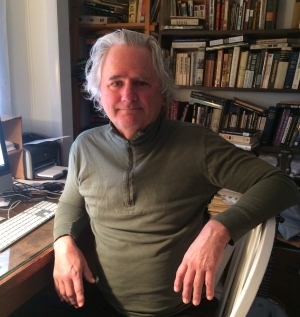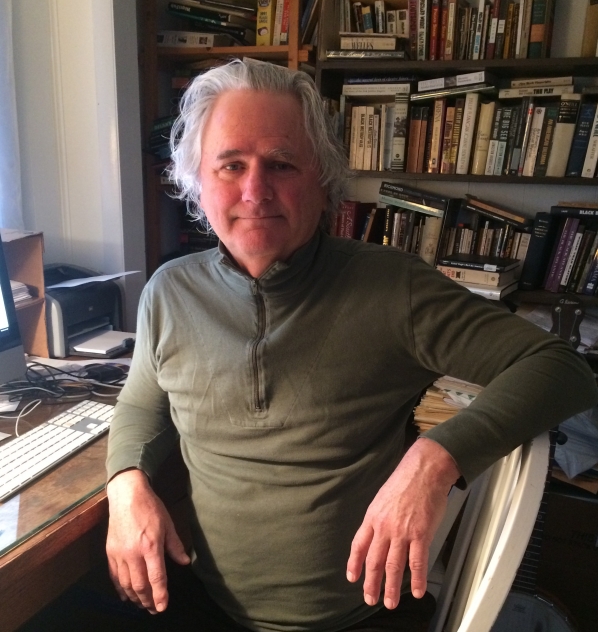Department of English Professor, Dr. Bruce Dick, is busy trying to complete a book project on the American author, Richard Wright. This work, which Dick has researched for several years, has piqued his interest throughout his academic career. Tentatively titled “Forgotten Chapter: The Theatrical Expressions of Richard Wright”, the manuscript blends biography with a critical look at Wright’s attempt to write for the theater.
“One of the things that biographers and scholars have forgotten is to examine Wright’s numerous associations with the theater, his attempts to write about the theater, and his involvement in actual theatrical writing,” Dick said.
Dick has taught for over thirty years and has been invested in African American literature for just as long. While teaching in a predominantly African American high school in Havana, Florida, in the early 1980s, he became engrossed in finding more diverse writers that might further engage his students. Becoming more interested in African American literature through this experience, he went on to gain a Ph.D. at Florida State University, focusing on Wright and the intellectual African and African American communities in Paris from the 1920-1960s.
Shortly after Dick started teaching at Appalachian State University, he received a postdoc grant to Paris to conduct research on Wright, who had moved to France in 1946. Dick worked closely with his Sorbonne mentor, Michel Fabre, the definitive biographer of Wright, which solidified his trajectory into the life of Richard Wright and his connections with the theater.
In his book-in-progress, Dick analyzes both the fiction and non-fiction of Wright to depict how the Mississippi-born author used theatrical tropes and related language to describe his own life, as well as the racial and social predicaments of his characters. Dick argues that in addition to his use of theatrical language, Wright was actively involved in theatrical productions of his own work. After publishing "Native Son", his most provocative novel, Wright was contacted by over twenty-five playwrights to adapt his novel to the stage. He ended up co-writing the play with UNC professor Paul Green, and worked closely with Orson Welles, who directed "Native Son" on Broadway in 1941. Wright remained intrigued by the theater for the rest of his life.
“In addition to all of his responsibilities with our courses in African-American literature and culture, Bruce has been proceeding with a project on the great American writer Richard Wright, which is approaching its conclusion. This is the kind of work that is the culmination of decades of research and development, and will be an indispensable contribution to the field,” says Leon Lewis, Dicks close colleague and friend.
Dick teaches classes in African American Literature, Ethnic American Literature, and Film. He works closely with his department’s film studies concentration, and is currently devising a course that will examine the black image in global cinema. Dick incorporates his research into his courses as much as possible, noting that in “almost every American literature course that I teach, somehow I bring in Richard Wright and his circle.”
###
About the Department of English
The Department of English at Appalachian State University is committed to outstanding work in the classroom, the support and mentorship of students, and a dynamic engagement with culture, history, language, theory and literature. The department offers master’s degrees in English and rhetoric and composition, as well as undergraduate degrees in literary studies, film studies, creative writing, professional writing and English education. Learn more at https://english.appstate.edu.
About the College of Arts and Sciences
The College of Arts and Sciences is home to 16 academic departments, two stand-alone academic programs, two centers and one residential college. These units span the humanities and the social, mathematical and natural sciences. The College of Arts and Sciences aims to develop a distinctive identity built upon our university's strengths, traditions and unique location. Our values lie not only in service to the university and local community, but through inspiring, training, educating and sustaining the development of our students as global citizens. There are approximately 5,850 student majors in the college. As the college is also largely responsible for implementing Appalachian's general education curriculum, it is heavily involved in the education of all students at the university, including those pursuing majors in other colleges. Learn more at https://cas.appstate.edu.
By: Johnna Reisner
June 12th, 2018
BOONE, N.C.

